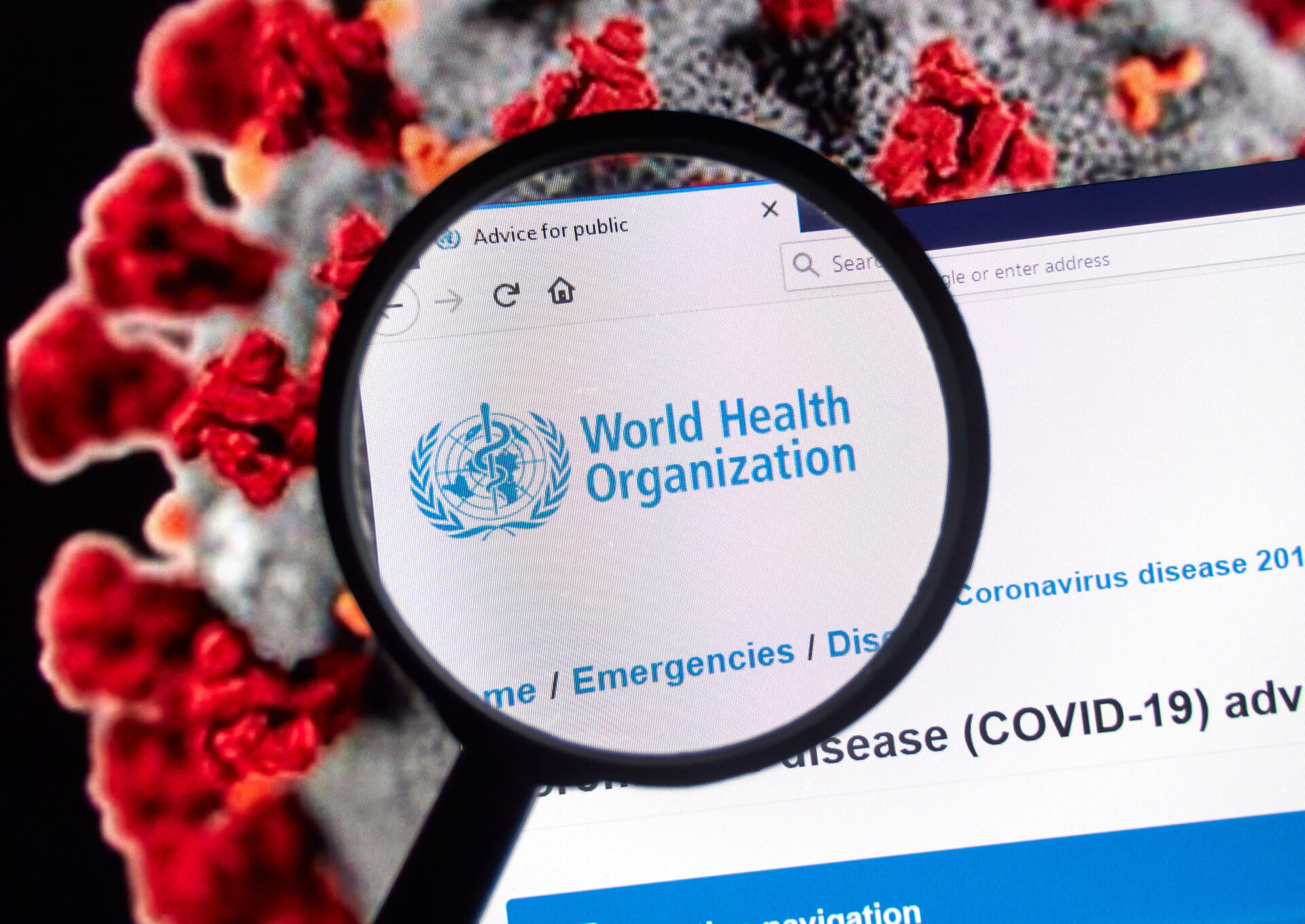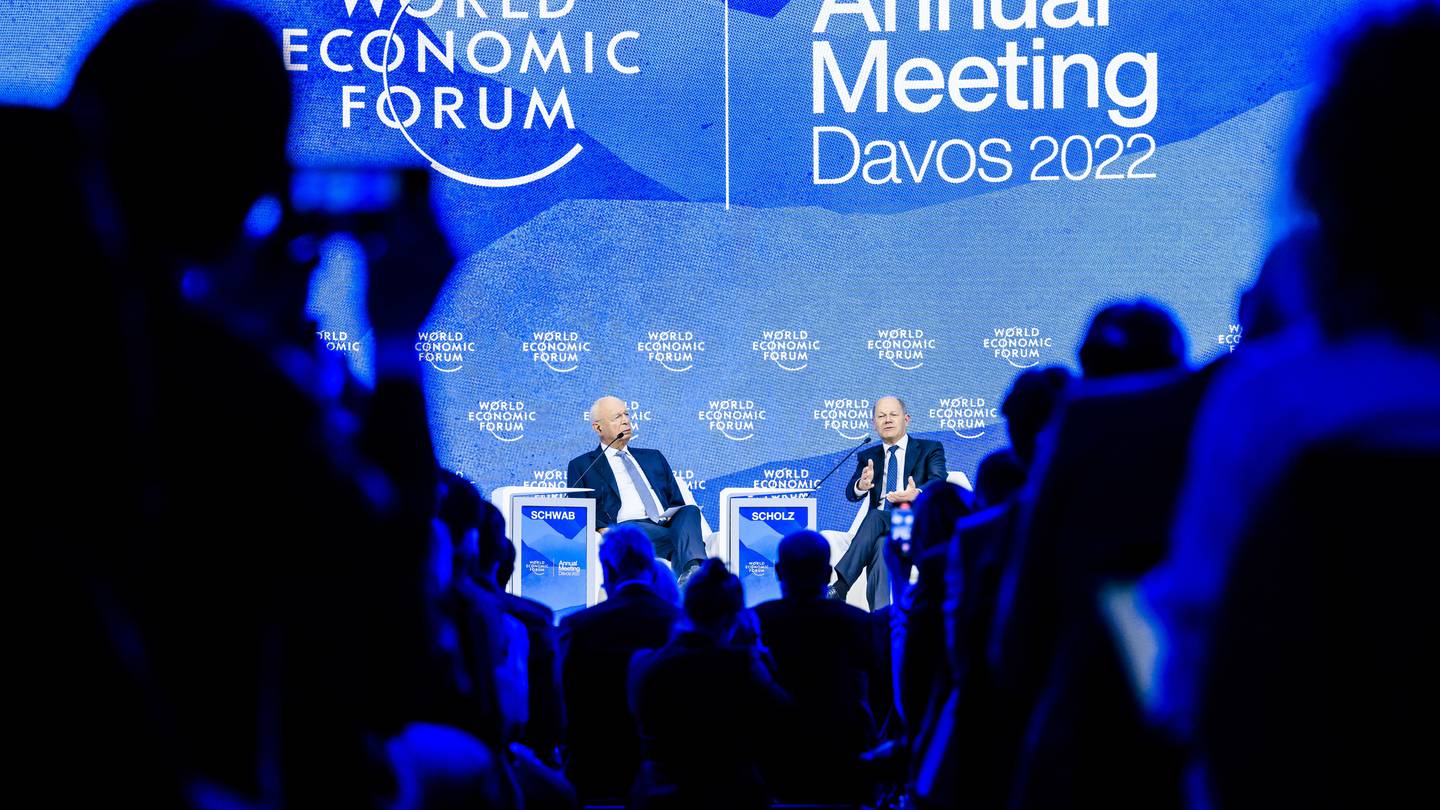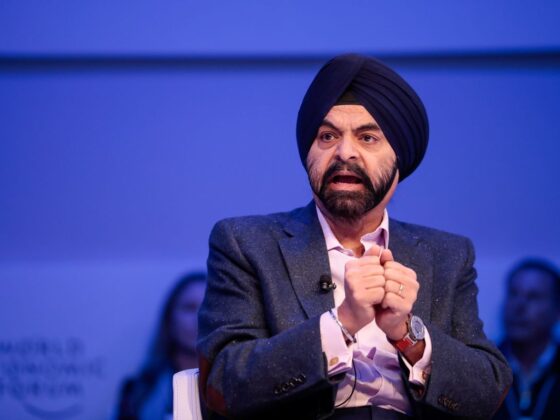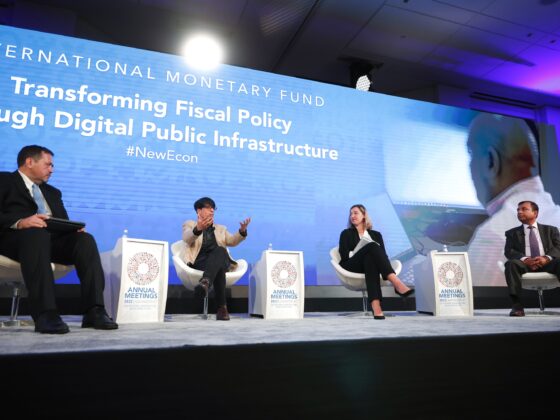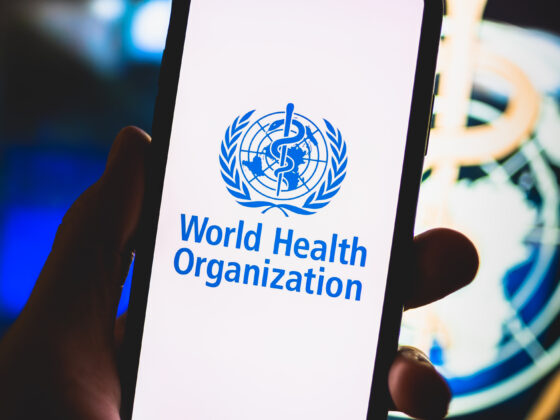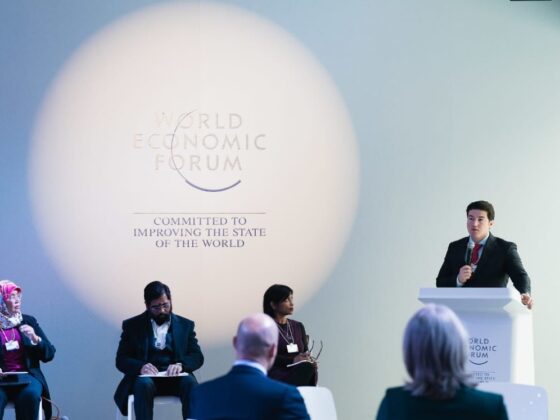“We are one world, we have one health, we are one WHO.” – Tedros Adhanom Ghebreyesus, director-general of the WHO, on the topic of the Global Pandemic Treaty
Everyone is talking about how on May 22, the World Health Assembly, the governing body of the World Health Organization, will meet in Geneva, Switzerland, to map out their pandemic treaty with the goal of solidifying their global power monopoly under the guise of “health & safety.”
But before we get into all of that, the Group of Seven (G7) wealthy democracies announced plans Friday (today) to “strengthen epidemiological early-warning systems to detect infectious diseases with pandemic potential.” They want to “increase compulsory contributions to WHO by 50% in the long term to ensure the U.N. agency can perform fulfill its global leadership role.”
Who will pay for that? We will. They are intent on bleeding us dry.
Then, Friday (today) it has been reported that the WHO is convening an emergency meeting to discuss the monkeypox outbreak. There is a good chance, we will be hearing more about monkeypox—along with a relentless and growing selection of disgusting illnesses to keep us in an ever-heightening state of anxiety, as we are entering another phase of of severe psychological warfare or “menticide.”
It’s interesting that the smallpox vaccine is said to be effective against the disease. Monkeypox has a mortality rate of 1% to 11%, experts say. And with all of this will come the inevitable tests.
Back to the Global Pandemic Treaty.
It’s important to understand that as NPR explained: The global response to the crisis is led by an underfunded World Health Organization that has no power to force any nation to do anything.
I don’t know about the “underfunded” part, but it’s true that the WHO does not yet have the power it seeks. The purpose of this meeting, and perhaps subsequent ones, is to convince the 194 member nations, with Biden leading the charge, to give up their sovereignty if and when the WHO determines there is a national or global health crisis.
As NPR continues:
The idea behind this upcoming session of the World Health Assembly, Tedros says, is to start sketching out a new world order to handle future health crises.
“We don’t have rules of the game,” Tedros says of the current situation. “To manage shared problems, like pandemics, you need laws and rules that bring obligations to countries. That’s what we miss. And I hope countries will agree to a binding pact so that pandemics can be managed better.”
According to the WHO this treaty needs to be signed and implemented by 2024. Hmm, just in time for presidential elections.
Nations who sign on to the treaty will be saying they give full support to the world’s health czar, Bill Gates, when he said in February of 2022:
“If every country does what Australia did the world could prevent the next pandemic.”
We know what Australia did. We watched in horror as they turned their country into a fascist state, imposed martial law and imprisoned their people in the name of “health & safety.” All the horrible mask mandates, lockdowns, and drugging of the population—none of which worked—will become law.
On Jan. 24, 2022, Tedros Adhanom Ghebreyesus, director-general of the WHO, explained the treaty was a “priority” to “urgently strengthen WHO as the leading and directing authority on global health, at the center of the global health architecture.”
“We all want a world in which science triumphs over misinformation; solidarity triumphs over division; and equity is a reality, not an aspiration,” he added.
He concluded, “We are one world, we have one health, we are one WHO.”
In a May 18 Forbes article, Bruce Y Lee describes how the world’s first response of Covid-19 was anything but united. It was chaotic, messy, disjointed.
Such inaction “allowed the virus to kill over 6.27 million people and counting, leave potentially millions upon millions more with long Covid, and cost society boatloads of money. That’s why the World Health Organization (WHO) will be discussing a possible Global Pandemic Treaty at the upcoming 75th World Health Assembly in Geneva, Switzerland, from May 22 to 28.”
The WHO already has an international health regulation that has been in place since 2005. But at this meeting, several amendments that were presented by the Biden administration a few months ago will be considered. These amendments have only been made public in mid-April.
In a nutshell, what are these amendments? Here are a couple of them, as explained by Daniel Horowitz for Blaze Media:
- The director-general of the WHO will have the power to declare a public health emergency in a country and unilaterally coerce its citizens to take certain actions. The proposed amendment deletes a critical sentence from Article 9 of the 2005 International Health Regulations: “WHO shall consult with and attempt to obtain verification from the State Party in whose territory the event is allegedly occurring…”

- If there was any doubt about the motivations of these amendments and the direction in which they want to take our sovereignty, look at the next proposed change:

There’s more to it than that, but this is enough to give the general idea and to assure us that we do not want this treaty to be signed.
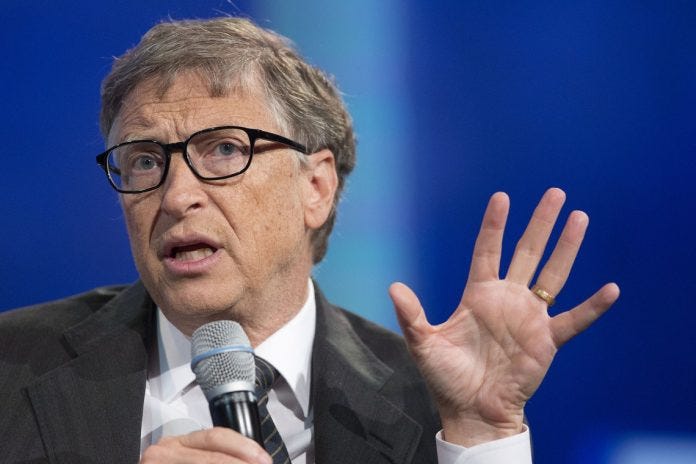
How did we get here? Let’s look at a few of the ways our Global Health Czar, Bill Gates, has led us down this poisoned path over the years.
In a 2015 Ted Talk Gates predicted that a pandemic would come along that would potentially kill millions of people.
Eh, voila! Covid!
During subsequent years, Gates kept busy. A 2017 Academic review by Sharmeen Ahmed, of Golden Gate University School of Law, titled Accountability of International NGOs: Human Rights Violations in Healthcare Provision in Developing Countries and the Effectiveness of Current Measures, details what Gates was up to in Africa.
Since the early 2000s, the Global Alliance for Vaccines and Immunizations (Gavi), Global Health Innovative Technology Fund and PATH, all heavily funded by the Gates Foundation, have been distributing vaccines and drugs to vulnerable populations in Africa and India. In 2010, the Gates Foundation funded experimental malaria and meningitis vaccine trials across Africa and HPV vaccine programs in India. All of these programs resulted in numerous deaths and injuries, with accounts of forced vaccinations and uninformed consent. Ultimately, these health campaigns, under the guise of saving lives, have relocated large scale clinical trials of untested or unapproved drugs to developing markets where administering drugs is less regulated and cheaper
This is the man who is now pushing for control over the health of everyone on the planet. It is no wonder that Africans remain skeptical.
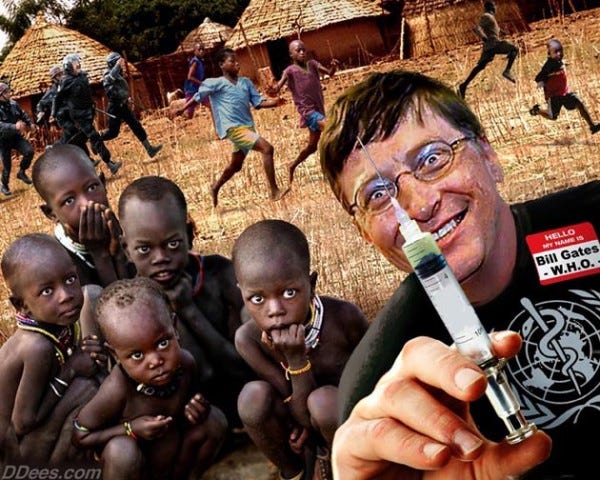
On February 4th, 2021, during an interview on Derek Muller’s YouTube channel Veritasium, Gates pointed out two prominent threats facing the modern world: climate change and bioterrorism.
“Climate change will be a death toll greater than Covid,” said Gates during the interview. “Also, related to pandemics is something people don’t like to talk about much, which is bioterrorism, that somebody who wants to cause damage could engineer a virus. So that means the chance of running into this is more than just the naturally caused epidemics like the current one.”
On November 4, 2021, Gates warned:
Governments must prepare for future pandemics and smallpox terror attacks by investing billions in research and development.
Mr. Gates made the warning during a Policy Exchange interview with the chair of the Health Select Committee Jeremy Hunt.
The Microsoft founder also called for the formation of a new billion-dollar World Health Organization Pandemic Task Force.
While the research may be expensive, he said that it could also lead to other innovations, such as eradicating flu and the common cold.
“It’ll take probably about a billion a year for a pandemic Task Force at the WHO level, which is doing the surveillance and actually doing what I call ‘germ games’ where you practice.”
Germ games. Biowarfare.
And now we have a war in Ukraine, with talk of biolabs, and the Russians unleashing bioweapons.
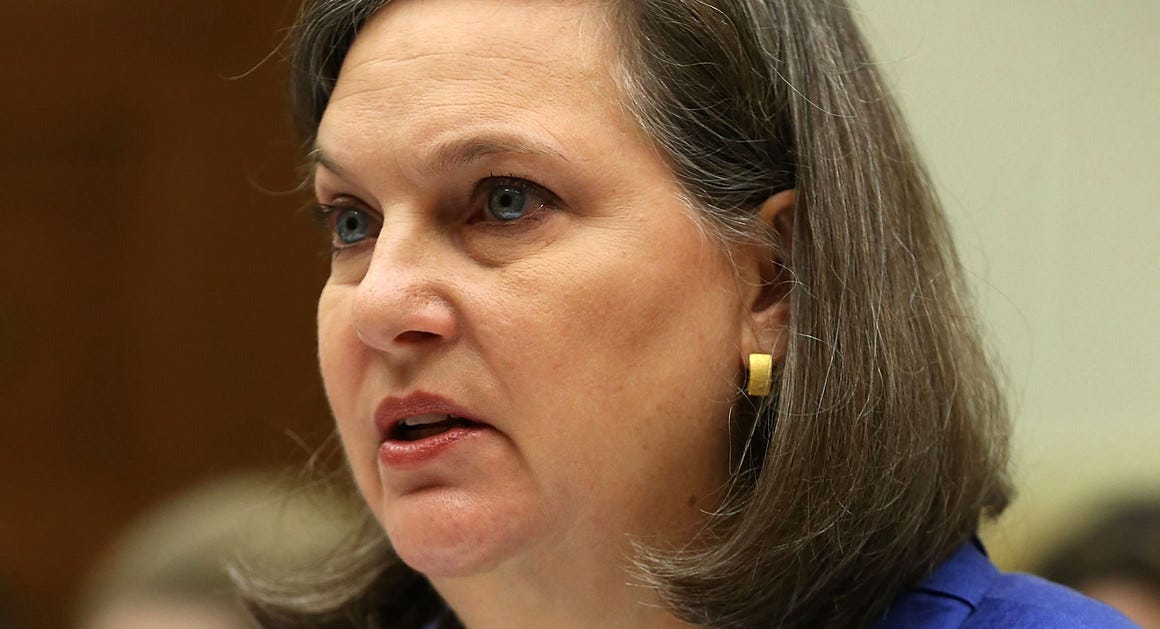
While speaking at the Senate Foreign Relations Committee hearing on Russia’s invasion into Ukraine, Republican Florida Sen. Marco Rubio asked Undersecretary of State Victoria Nuland for verification of what up until that moment had been another one of those silly conspiracy theories: “does Ukraine have chemical or biological weapons?”
To which she had no choice but to reply: “Ukraine has biological research facilities, which, in fact, we are now quite concerned Russian forces may be seeking to gain control of. So, we are working with the Ukrainians on how they can prevent any of those research materials from falling into the hands of Russian forces, should they approach.”
And then, Rubio had to hastily clarify that of course it would be unthinkable for the United States to be working on biological weapons to unleash on the Russians. It had to be Russian propaganda groups putting out disinformation about “how they’ve uncovered a plot by the Ukrainians to release biological weapons in the country with NATO’s coordination.”
Because the United States would never stoop to such tactics, right?
But wait, the US has a history of not only conducting biowarfare against its enemies but conducting biowarfare experiments on its own people.
As just one example, in 1950, San Francisco was chosen as the perfect city, due to its famous fog, for the US military to conduct a test to see whether fog could be used to help spread a biological weapon in a “simulated germ-warfare attack.” This was one of at least 239 tests around the country that would go on in secret for years.
Rebecca Kreston at Discover Magazine writes:
The Nuremberg Code was drafted in 1947 following the appalling revelations of human experimentation committed in Nazi concentration camps. The overarching goal of the Code was to establish a set of rules for the ethical conduct of research using human subjects, guaranteeing that the rights and welfare of such participants would be protected. Two important principles guide and define this Code: the concept of voluntary, informed consent and that no experiment shall be conducted in which “there is an a priori reason to believe that death or disabling injury will occur.”
Just four short years later, the government of the United States would violate the Code as it undertook one of the largest human experiments in history, spraying the city of San Francisco with a microbe, Serratia marcescens, in a simulated germ warfare attack.
I could list many well-documented instances when the United States used bioweapons on its enemies and at home. Knowing this, it isn’t a stretch to consider that the Covid-19 pandemic was a diabolical experiment unleashed upon the entire world. Or that the mRNA gene therapy “vaccines” given to millions of people under duress without informed consent was the continuation of that experiment.
Whereas once such experiments were done in secret, now they are flaunted openly. The goal being to terrify the populace so thoroughly that they willingly give up all their freedoms and live under a tyranny of constant drugs and surveillance in exchange for “health and safety.”
Please, the populace will say, what are you waiting for? Sign that pandemic treaty so the WHO can save us!
Never fear. Bill Gates is here, along with his army of WHO warriors to do just that.

In 2018, Bill Gates and Gavi announced a partnership with Mastercard:
Under the banner of “efficiently delivering vaccines to millions of children, tracking identity and immunization records in a digitized manner and incentivizing the delivery of vaccines.”
The biometric digital identity platform Trust Stamp, which claims to “evolve as you evolve,” is to be introduced in “low-income, remote communities” in West Africa as part of a partnership between the Bill Gates-supported GAVI vaccine alliance and Mastercard.
The new program, to be tested in West Africa, will see Trust Stamp’s technology integrated into the GAVI-Mastercard “Wellness Pass,” a digital vaccination record and identity system.
All of this brings us into the era of the Internet of Bodies, which the World Economic Forum describes as “collecting our physical data via a range of devices that can be implanted, swallowed or worn.”
Covid has been such a wonderful excuse to implement restrictions, policies, experimental drugs and devices that people would have balked at under ordinary circumstances. But it is still a challenge to surveil and control every person on the planet. The only way is with a stamp or a microchip.
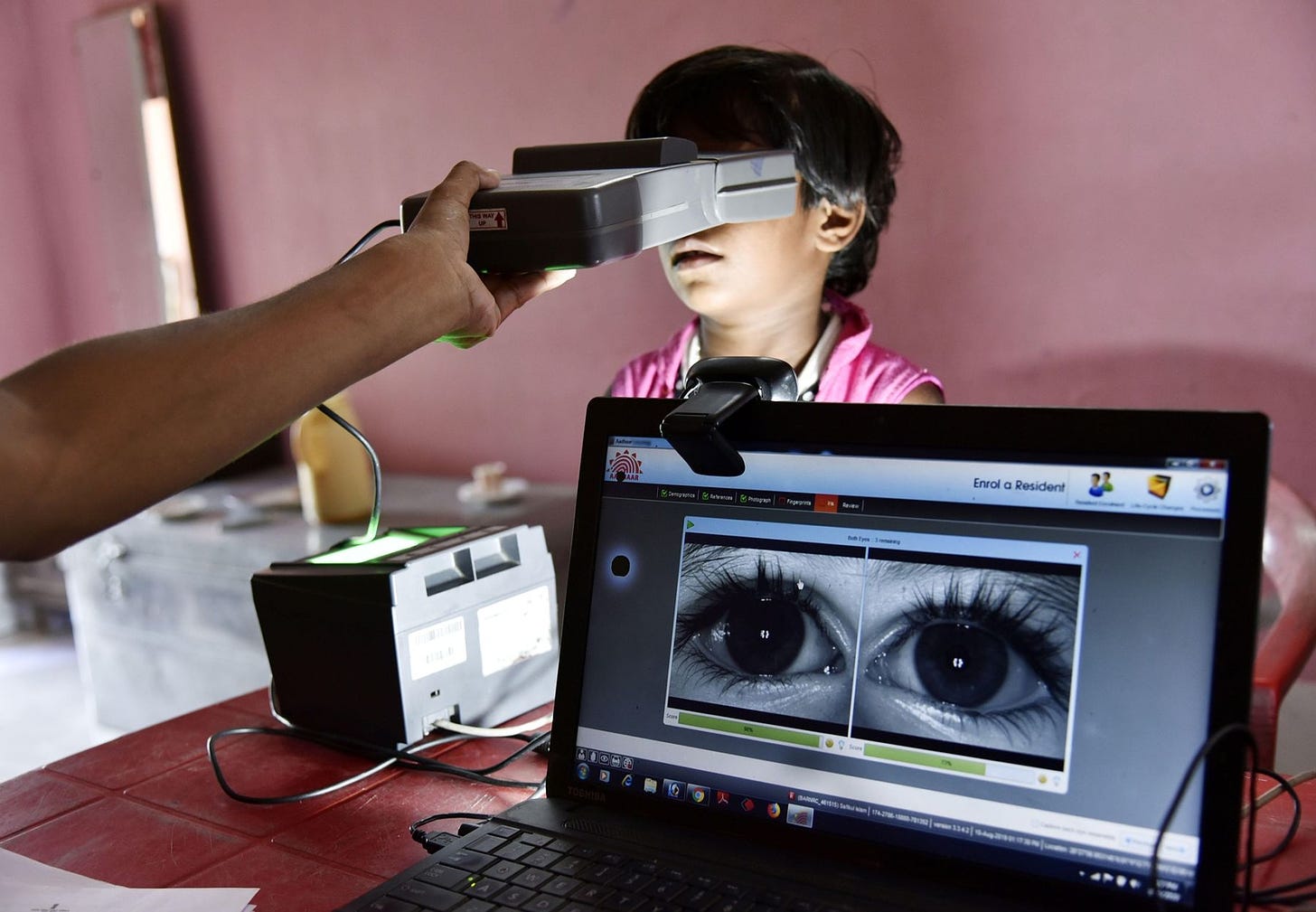
Of the 1.1 billion people who lack formal proof of identity, most live in Asia and Africa, and a third of them are children, according to World Bank data. While our overlords say with grave concern that this isolates them from “systems of democracy and social welfare,” what they really mean is that they cannot tolerate anyone being untraceable.
It reminds me of the Eye of Sauron in The Lord of the Rings. The Eye seeks out whoever wears the Ring and once it finds you, it sets about controlling and manipulating you to forget all that is good and submit to all that is evil.

When the hobbit Frodo sees the Eye in the Mirror of Galadriel, he says, “The Eye was rimmed with fire, but was itself glazed, yellow as a cat’s, watchful and intent, and the black slit of its pupil opened on a pit, a window into nothing.”
Gates and his GERM warriors want us all under surveillance of the Eye of Sauron. No one shall remain anonymous.
I wish I could be anonymous. In the late 1980s, before all of this digital monitoring, I returned to the United States after having lived for seven years between London and a village in what was then Yugoslavia. For the longest time after I arrived back in Los Angeles, I didn’t even want to open a bank account. I’d been out of the country for such a long time and the government had forgotten all about me. Nothing came for me in the mail. No one except for my family and a few close friends knew I existed. Eventually I rejoined society, but I always look back on that time with nostalgia. I do even more so now!
Perhaps the day will come when those of us who refuse to submit to the evil Eye will have no choice but to throw away all of our technological devices and disappear like those adventurous hobbits did, into the wilderness.
Finally, we come to Bill Gates April 2022 Ted Talk where he said that “we now have the tools and strategies to make it possible to beat pandemics—we just have to fund them.”
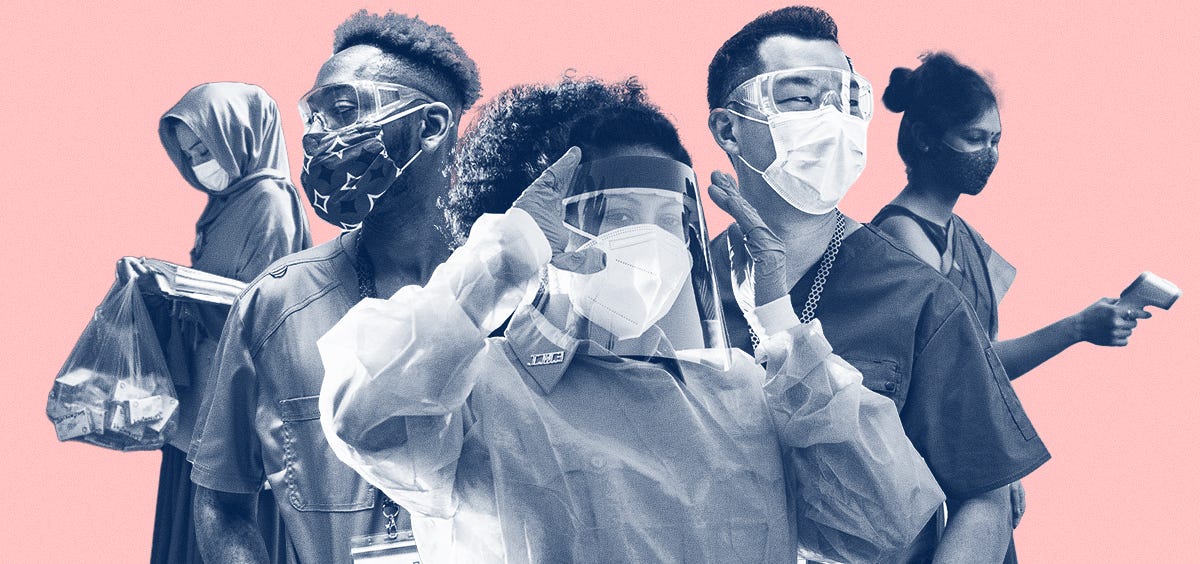
In Gates Notes Meet the Germ Team, he proposes a multi-specialty Global Epidemic Response and Mobilization (GERM) team that would detect potential outbreaks and stop them from becoming pandemics. By investing in disease monitoring, research and development as well as improved health systems, Gates believes we can create a world where everyone has a chance to live a healthy and productive life — a life free from the fear of the next COVID-19.”
I mean, GERM? Really?
I am tired of germs. I am fed up with being told I have to be afraid of every little thing.
I do not want a one-size-fits-all health plan for me and every other single person on the planet where we all must obey what some Artificial Intelligence tells us to do. I refuse to be chipped and stamped.
For five years before this pandemic, I traveled the world on my own, with a very small suitcase and a backpack containing my computer and my books. I trained with like-minded fighters in Sucre, Bolivia. I took the night bus over the Atlas Mountains to share stories and art between children in a village in the Sahara Desert and Hoopa Children in Northern California.

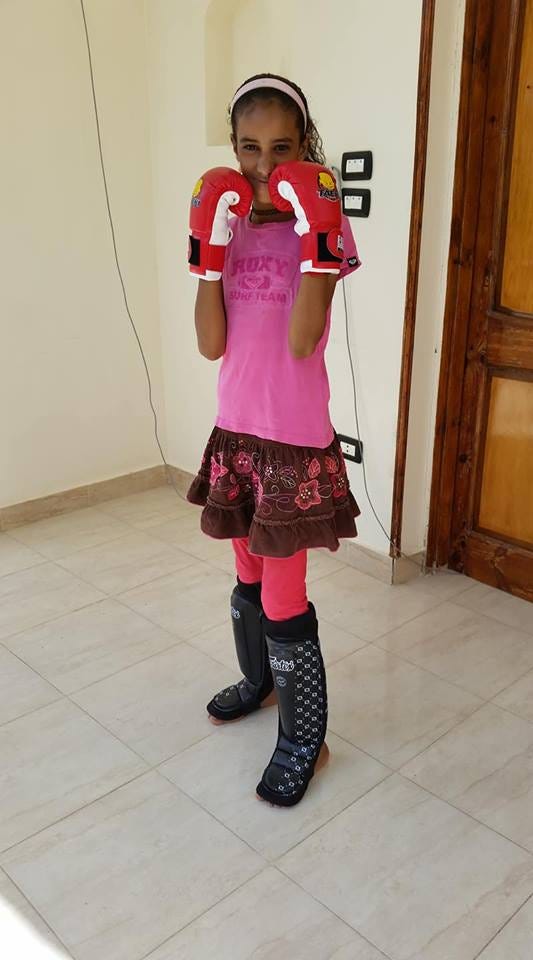

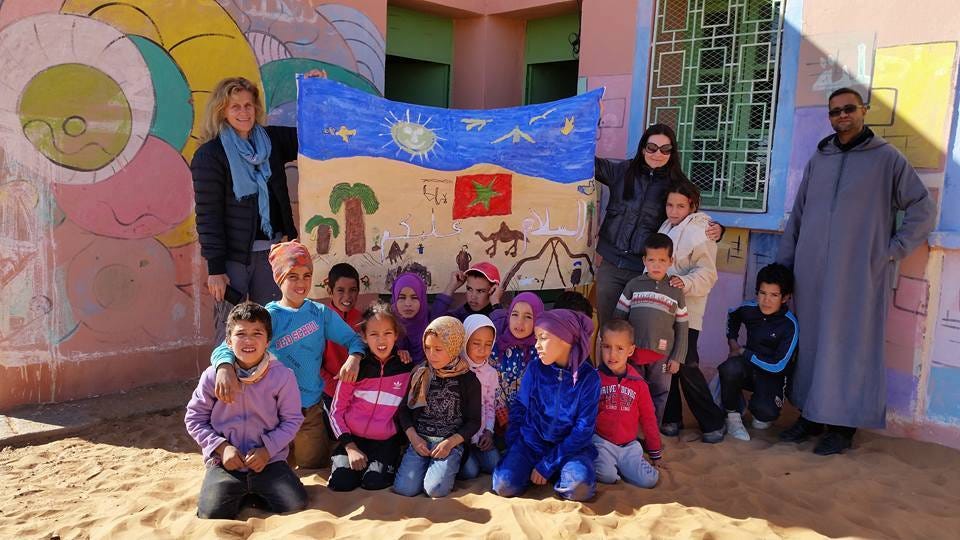
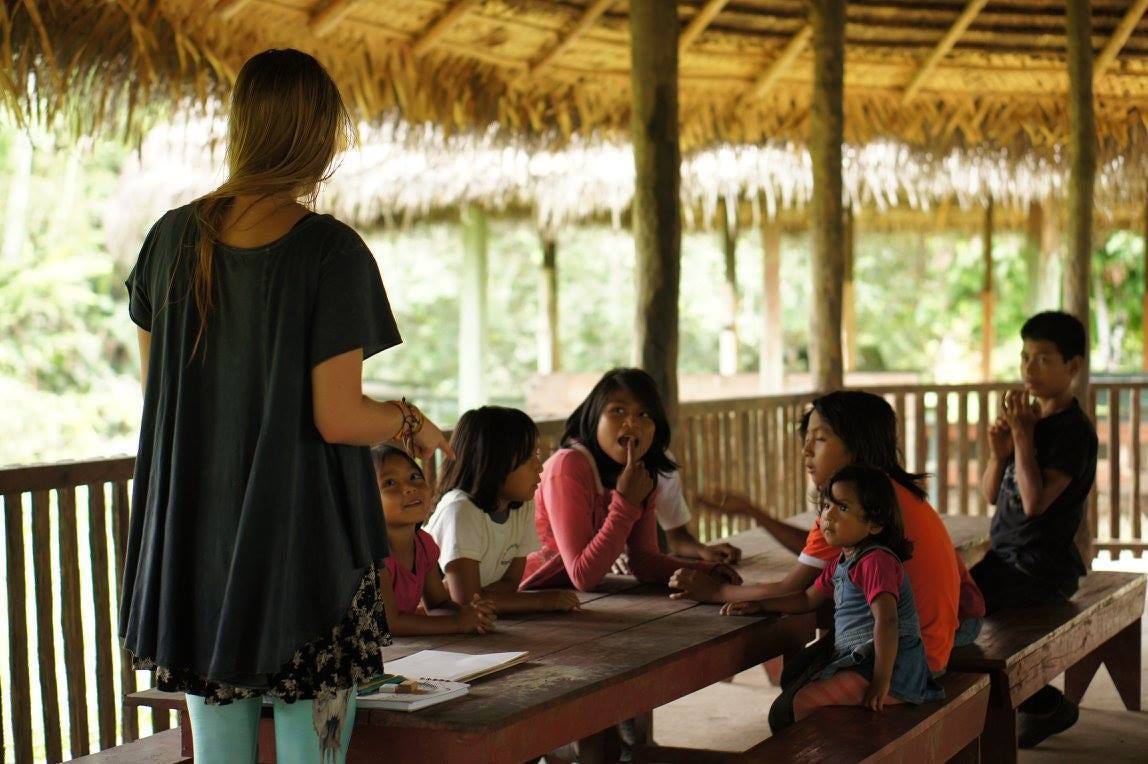
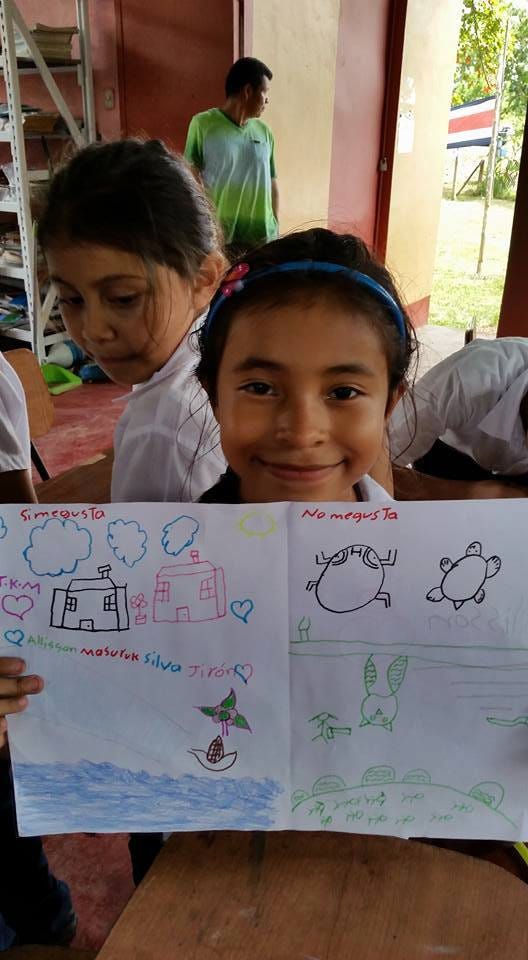
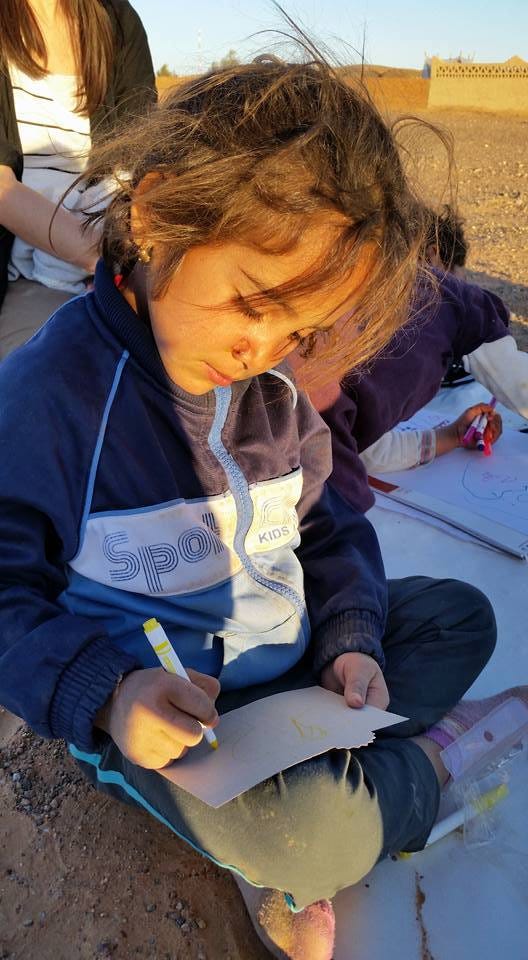
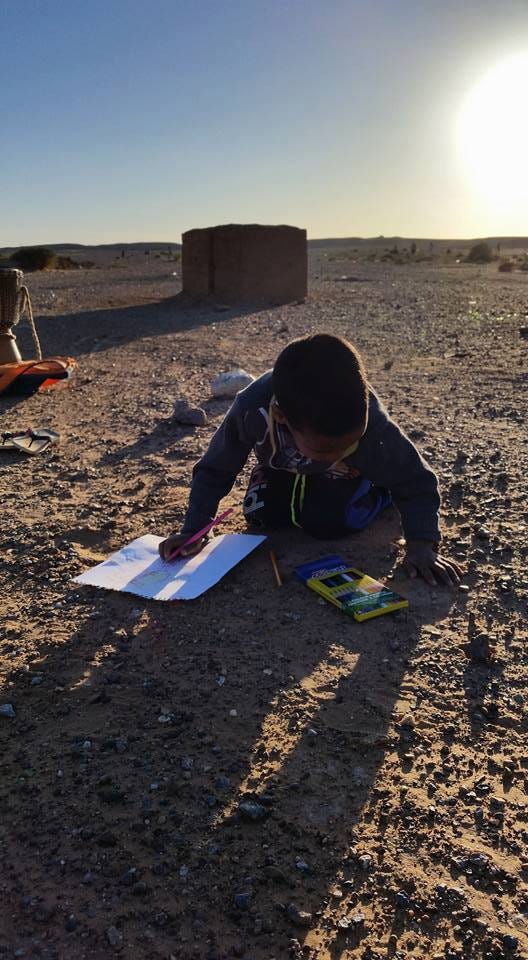
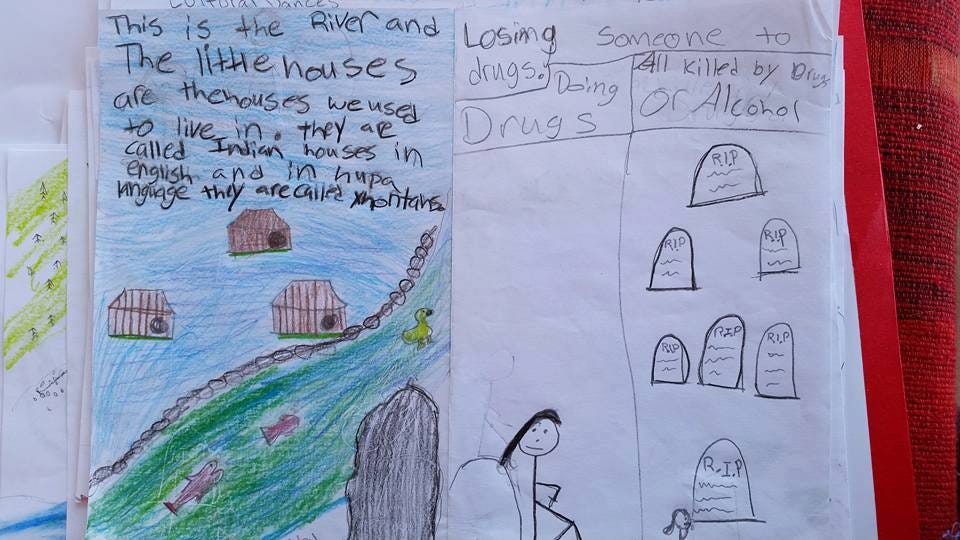
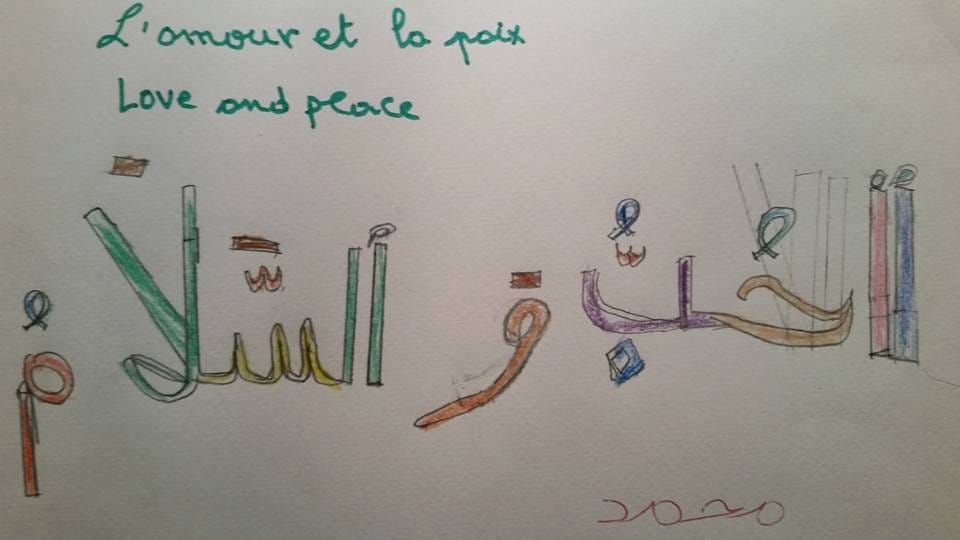
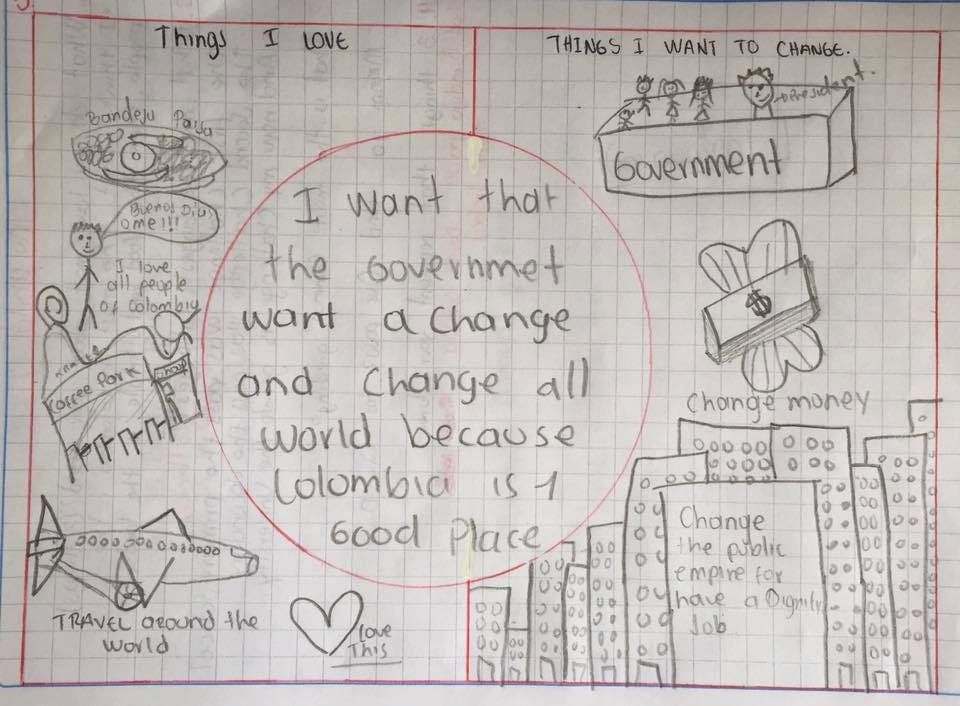

This is the world that I want. A place of uncertainty, even dangerous at times, with the chance of getting sick or falling down, or stepping on a scorpion or a snake. But also, real and overwhelmingly beautiful with connections to people and places that will never be forgotten.
Yes, Tedros Adhanom Ghebreyesus, we are “one world,” but we do not have “one health,” and we are not “one WHO.”
We are all unique beings created by God.
When I was maybe 12 years old, I used to walk down to the “drugstore” on a Saturday morning with my sister—after finishing our chores. If it was summer, we went barefoot, we never wore shoes all summer long. In fact, we used to stand on the hot ground to toughen up our feet and see who lasted the longest before having to run to shade. You could fry an egg on that ground. Anyway, there was a rack with books at the drugstore and one time I found The Hobbit. It looked like a wonderful book! My favorite thing was to buy a book and a pile of candy and go home, lie on my bed and read at chomp away. After I finished the Hobbit, I bought the other five books in the Lord of the Rings series. Within those pages I learned about honor and courage and the evil that does its best to pull us in and destroy our souls and the good that triumphs overall.
“He [Bilbo] used often to say there was only one Road; that it was like a great river: its springs were at every doorstep, and every path was its tributary. ‘It’s a dangerous business, Frodo, going out of your door,’ he used to say. ‘You step into the Road, and if you don’t keep your feet, there is no knowing where you might be swept off to.’ . . .”
So said Frodo, a wise hobbit if ever there was one.
Let us walk this Road, refusing to be captured and caged behind the WHO’s Gates of Hell.


